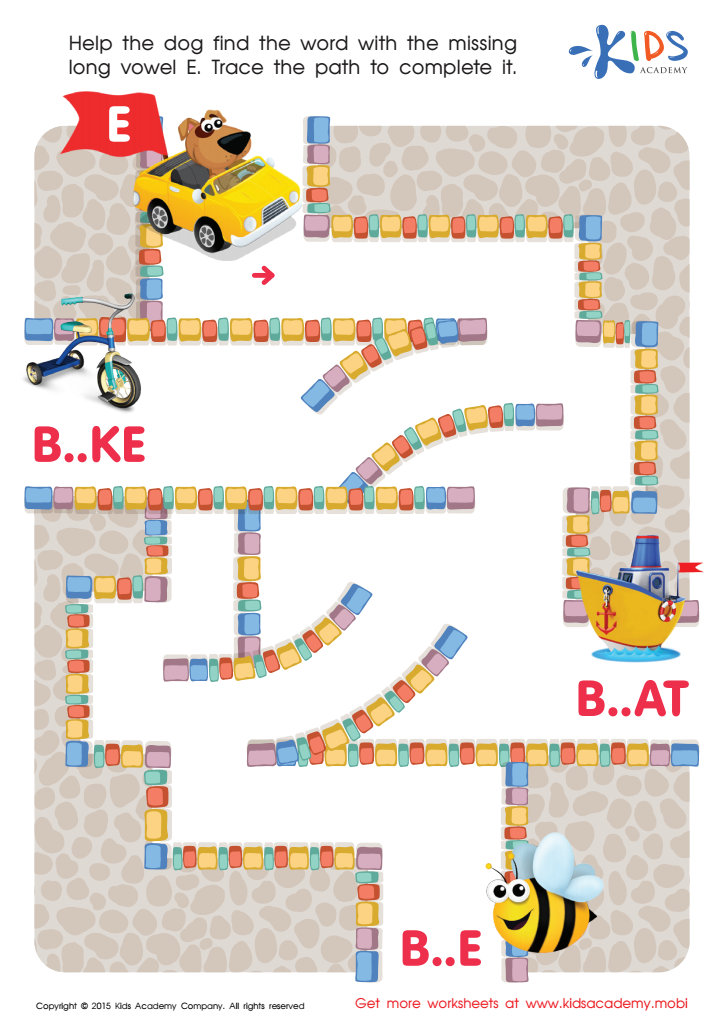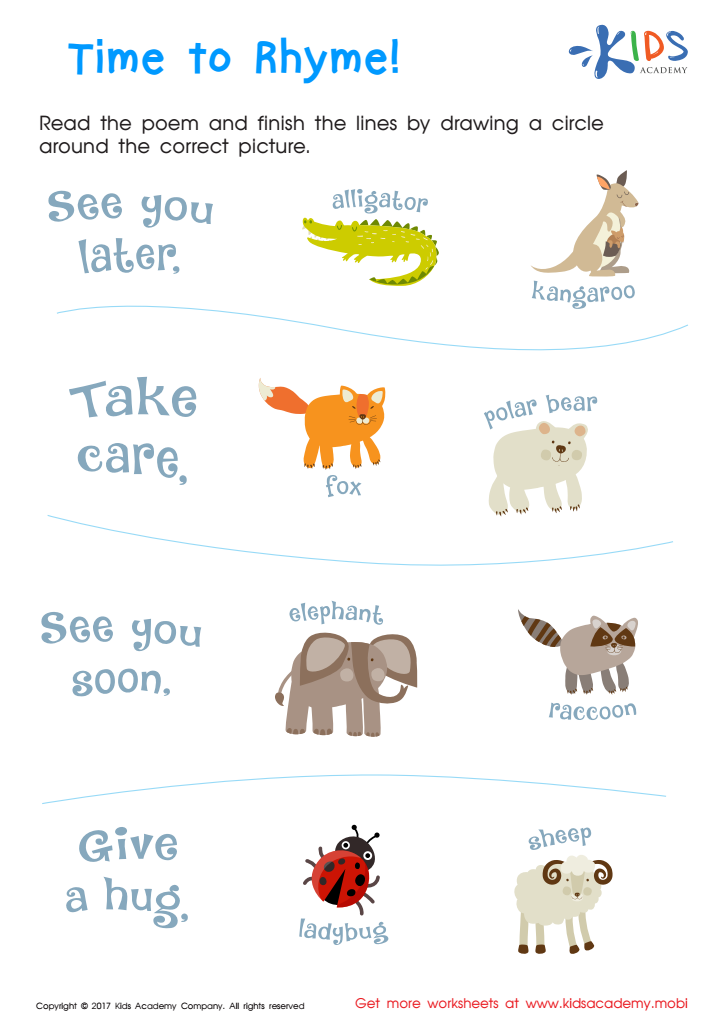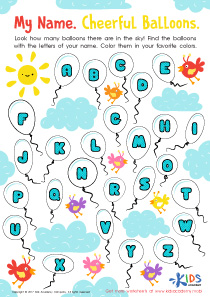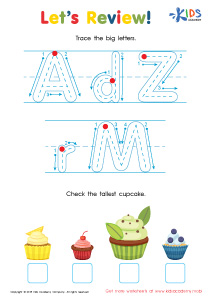Reading comprehension Normal Preschool Alphabet Worksheets
6 filtered results
-
From - To
Enhance your preschooler's reading skills with our engaging Reading Comprehension Normal Preschool Alphabet Worksheets! Designed for young learners, these worksheets help children recognize letters, understand their sounds, and improve vocabulary through interactive activities. Each worksheet is thoughtfully crafted to make learning fun, with colorful graphics and simple exercises that promote critical thinking and comprehension. Perfect for home or classroom use, these worksheets support early literacy development and empower kids to build a strong foundation for future reading success. Explore our collection and give your child the tools they need to thrive as they embark on their literacy journey!


Rhyming Words Rhyming Worksheet


Long Vowel Sound E Worksheet


First Words: Picture Rhymes Worksheet


Time to Rhyme Rhyming Worksheet


Long and Short E Worksheet


Phonics and Word Recognition: Assessment 1 ELA Worksheet
Reading comprehension is a foundational skill that shapes a child's academic journey and overall development. For parents and teachers, understanding reading comprehension in the context of a "Normal Preschool Alphabet" lays the groundwork for effective literacy education.
At this crucial stage, children are introduced to letters, sounds, and early vocabulary, which are critical for reading success. By caring about reading comprehension, adults can foster a love for reading and support children’s ability to make connections between text and meaning. This is not just about decoding words; it involves nurturing curiosity, engaging in discussions about stories, and building inference skills.
A solid grasp of reading comprehension also enhances a child's cognitive development as they learn to process information, develop critical thinking skills, and express their ideas. Furthermore, strong literacy skills set children up for future academic achievement, increasing their confidence and enthusiasm for learning.
Teachers and parents, when attentive to these aspects, can create a rich, supportive literacy environment that acknowledges diverse learning styles. Ultimately, prioritizing reading comprehension in preschool not only equips children with essential skills but also cultivates a lifelong passion for reading, paving the way for their future success in both education and life.
 Assign to My Students
Assign to My Students














